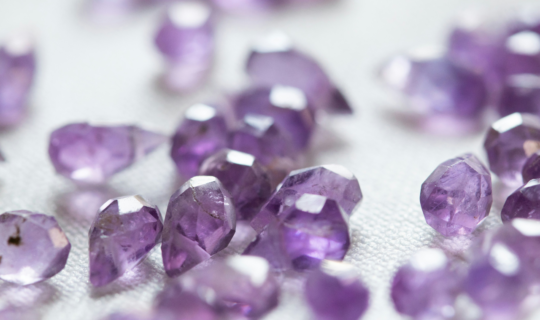Now if any man build upon this foundation gold, silver, precious stones, wood, hay, stubble.
— 1 Corinthians 3:12
If you are ever fortunate to visit the city of Rome, you will be amazed to see how much of that ancient city has survived the past 2,000 years. Right in the heart of Italy’s modern capital, you can almost take a peek into ancient Rome as you gaze upon ruins from the time of the Roman Empire, such as the Coliseum, Pantheon, Roman Forum, and so much more. It is truly remarkable.
The reason so much of ancient Rome can still be seen today is that most of its buildings were constructed of stone. Romans wanted their greatness to be etched into human history forever. Therefore, when they built the city, they constructed buildings designed to declare the Caesar’s glory for millennia. Government buildings, palaces, streets, monuments, columns, and statues — all of these were intended to tell future generations how great the Romans were. Although the gold, silver, and precious stones that once adorned these buildings have since been stripped away, scores of these structures remain intact. And just as the original builders intended, they tell us about the glory of the Romans.
However, not all of Rome was made of stone, gold, silver, and precious stones. There was another side of Rome, where the flimsy, poorly made wooden dwellings of the poor were located.
Because wealthy Romans didn’t like to do manual labor, they imported foreigners from across the great Roman Empire and forced them into slavery. As a result of this massive importation of slaves, each year the slave population grew larger and larger until it became the largest sector of Rome. Some estimate that the slave population outnumbered the free population of the city by three to one! In effect, the city of Rome had become a city of slaves who lived to serve the needs, whims, and desires of their masters.
As large as this slave sector was, the ancient dwellings of the slaves did not survive the past 2,000 years. Over the centuries, the weather, decay, and fire that ravaged Rome also ravaged those flimsy wooden structures. The homes of the slaves, who had no personal funds and were generally poorly treated by the rich Romans, were constructed quickly and cheaply using wood, hay, and stubble as building materials. That’s why almost nothing remains of these shabby dwellings today. They could not pass the test of time and were never intended to survive like the massive stone structures that tell about the greatness of the Romans.
Because the apostle Paul traveled throughout the Roman Empire, he witnessed the disparity between the rich and the poor. He’d gaze upon the massive stone structures of the rich. Then right next to those impressive buildings, he’d see the flimsy homes where slaves were forced to live. What a comparison! One type of structure was built to last forever, whereas the other type was so rickety that it wouldn’t even last a lifetime.
As Paul wrote to the Corinthians and urged them to be careful about how they lived and built their lives, he used this comparison as an illustration. His point was this: Although all believers have the solid Rock of Jesus Christ under their lives, what they build on top of that foundation is so very important.
Hence, Paul wrote, “Now if any man build upon this foundation gold, silver, precious stones, wood, hay, stubble.” In this statement, Paul was asking us:
- Are you building your life with eternity in mind?
- Are you using materials that will stand the test of time — or that will produce a structure that won’t last long?
- Are you building your life hastily and cheaply for today — or in a way that will count forever?
Let’s look at the building materials Paul listed in this verse. First, he mentioned “gold.” This word “gold” is the Greek word chrusos, which means gold and describes the most valuable material that existed in the Roman Empire. Nothing was more expensive or costly than gold. Gold was extremely rare — especially before the time of Alexander the Great — and was therefore highly prized. Gold wasn’t strong enough to be an actual building material. But if a building was extremely important, gold was used ornamentally on the outside relief of buildings and in the decor of its interiors. When gold was used, either on the exterior or inside décor of a building, it indicated that this building was a structure of great significance.
The word “silver” is the Greek word arguros, which often referred to silver money because silver was the primary metal used for coins. For example, the Bible tells us that Judas Iscariot betrayed Jesus for “thirty pieces of silver” (see Matthew 26:15). The word “silver” is this Greek word arguros and conveys the idea of money.
However, silver was also used inside special buildings for ornamentation and decoration, similar to the way gold was used, and items for worship or prestige were often fashioned of silver. In Acts 19:24, we read that idols depicting the goddess Artemis in Ephesus were made of silver. Anything in the ancient world that was made of silver was considered expensive and precious.
The phrase “precious stones” in Greek is lithous timious, from the word lithos, the Greek word for stone, and the word timao, a Greek word meaning honorable, costly, or precious. When Paul mentioned “precious stones,” he was not alluding to diamonds, rubies, emeralds, sapphires, or other gemstones. Paul was referring to expensive building materials, such as marble or granite. These materials were considered top-of-the-line building materials because they could endure weather, fire, and time. Any building made to last was fashioned of marble or granite.
Gold, silver, and precious stones (marble and granite) were the most expensive and the highest quality materials used in the construction of a building in Paul’s day. These were durable, long-lasting, resilient materials! That’s why buildings made of these materials are still standing today.
But Paul went on to describe another category of building materials: wood, hay, and stubble. Let’s also look at these words for just a moment to see why he mentioned them in this verse. You are about to see that Paul was making a very dramatic comparison!
First, the word “wood” is the Greek word zulos, and it means wood, wooden timbers, branches of a tree, boards, or anything made of wood. It primarily denoted building materials. However, this word was also frequently used to depict fuel for a fire. This word zulos describes a building composed of cheap, temporary, perishable, burnable materials. You can quickly build such a building, but a house of wood is never built to last for the ages. This was the primary material used in construction of slave dwellings in Rome. These wooden houses were homes that could go up in smoke very easily.
Second, Paul mentioned “hay,” which was another material used in the construction of slave dwellings. The word “hay” is the word chortos, and it means grass or hay. This “hay” should never have been used as a construction material, for it was meant to be the food that was fed to animals; in fact, it was often used to mean fodder. In other words, this “hay” was meant to be eaten, not used for construction. Because of its fragile, transitory nature, hay was considered to be the poorest material to use in construction. Yet in the slave homes of Rome, it was commonly used for the roof.
Third, Paul mentioned “stubble.” This is the Greek word kalame, which simply means straw or stubble. This material was so inferior that even animals wouldn’t eat it. Yet in the homes of slaves, it was used as a floor covering, as insulation, and as stuffing for beds. It was cheap, disposable, and replaceable. Think of it! These slave dwellings were made of wood and sticks; the roofs were made of grass; and the walls were insulated with straw. No wonder these dwellings didn’t last!
As I’ve stated, one type of building was built to last forever, whereas the other was so rickety that it wouldn’t even last a lifetime.
By using this illustration, Paul was confronting us with the question: How are you building your life? Are you building hastily and with perishable materials? Or are you taking your life seriously, building carefully with materials that will last throughout your life and are strong enough to impact not only this present generation, but also the generations to come?
This is precisely what Paul was saying when he wrote, “Now if any man build upon the foundation gold, silver, precious stones, wood, hay, stubble.”
The Foundation under our lives is Jesus, but what we build on top of that Foundation depends on our personal commitment and the level of excellence we demand of ourselves in every area of our lives. So I ask you: Are you building something with your life that will be enduring — or are you building so hastily and poorly that everything you’ve built could go up suddenly in a puff of smoke?
Look at your life and ask yourself:
How am I building my marriage?
Based on what I am doing today, will my marriage flourish or perish?
How am I building my children?
Will my children pass the tests of life because of what I am putting into them?
How am I building my relationships?
Am I building my relationships so they can stand up against any storm?
How am I building my ministry?
Am I doing a lot of “quick fixes” that aren’t real solutions to problems in my ministry, or am I taking time to build my ministry right so it will last a lifetime?
How am I building my business?
Will the steps I am taking today build a long-term business, or will I later regret that I didn’t make longer-lasting decisions?
How am I building my finances?
Am I using money in a way to build my future, or am I throwing away my future by being reckless today?
How am I building my health?
If I keep doing what I am doing right now, will I be healthy later in life, or is my present lifestyle jeopardizing my future physical health?
Yes, Jesus is the Foundation under your life. Thank God for this awesome truth! But what you build on top of that foundation depends upon you. I advise you to ponder the questions I’ve posed to you in this Sparkling Gem and to spend some time talking to the Lord about how you answer them. This is such an important issue, because the ultimate outcome of your life depends on your getting those answers right.
MY PRAYER FOR TODAY
Lord, as I start my day today, I ask You to help me seriously consider the way I’ve been building my life, my finances, my business, my ministry, my relationships, and my family. Forgive me for getting in a hurry and for doing things too hastily at times when I need to be concentrating on doing things right. Help me build my life in such a way that it will survive the test of time. Give me the insight I need to know when I am building correctly and when I am building too quickly. I know that my life is important and that You have trusted me as a steward over everything I have. So today I confess that I need Your help to build with the right materials and to build in such a way that what I do for You impacts future generations and passes the test of time.
I pray this in Jesus’ name!
MY CONFESSION FOR TODAY
I confess that with God’s help, I am building my life wisely and with materials that will pass the test of time. My life is a gift from God, and I am a careful steward over this wonderful gift. Instead of being too hasty, I am carefully taking one step at a time, building my life, vision, business, and family so they will be strong for years to come. I would never be smart enough to build a life that lasts in my own strength, but with the assistance of the Holy Spirit, I am learning to build my life wisely, carefully, and for longevity!
I declare this by faith in Jesus’ name!
QUESTIONS FOR YOU TO CONSIDER
- Can you think of areas of your life that were built incorrectly and therefore didn’t last the way you had wished? What were those areas, and what did you learn from these experiences?
- Are you presently building certain parts of your life with shaky, flimsy materials? If so, what steps are you going to take to change this?
- Take a few minutes today to let the Lord help you review your life so you can honestly ascertain if you are building your life correctly or incorrectly. Never forget that your life is a gift from God and that you are called to be a wise steward of that gift by building your spiritual house with gold and silver and precious stones!



